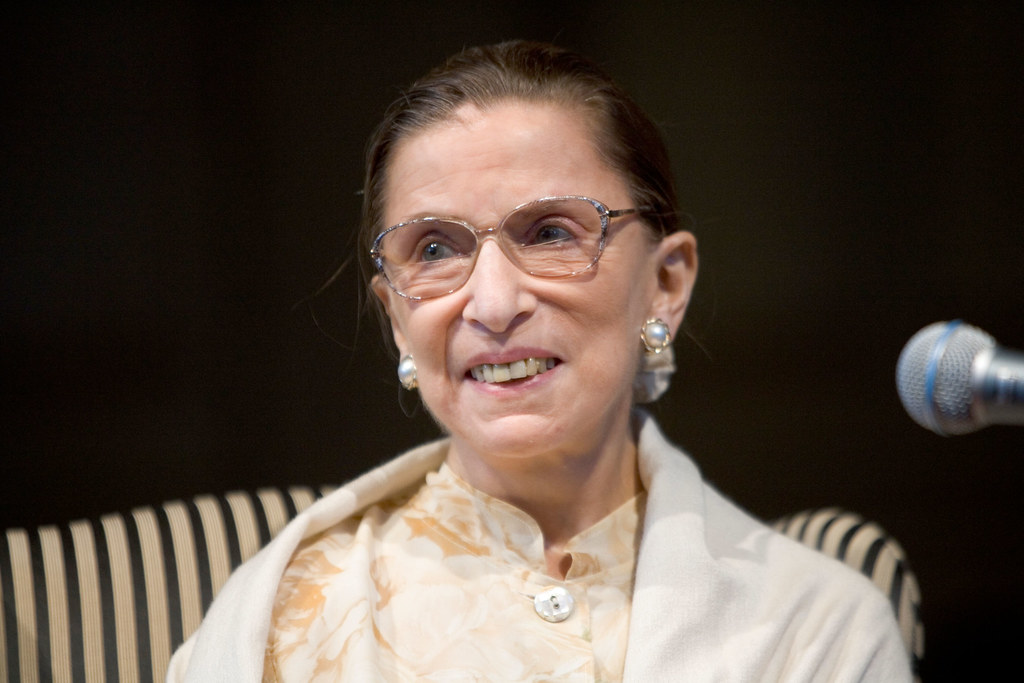On surface, it’s hard to think of reasons why RBG’s story or values could resonate with someone like me.
She’s an American, Jewish, and elderly (when I was born!) Supreme Court Justice. I’m a Hong Kong-born and bred aspiring scholar, who spent half of my life figuring out my identity, and the other half living out an imperfectly articulated smorgasbord of it.
She was educated in leading law schools at the States, I was educated at Oxford. She has achieved an immense amount as a pioneer and advocate, whereas I’m still exploring a journey that has yet to begin, filled to the brim with uncertainty and unknowns – as a first-year PhD student in politics.
But RBG meant something. She meant something to not only me, but also my peers, to many of my friends who woke up this Saturday morning, and who shared a poignant, sharp exhalation when they saw the news headlines: “RBG is dead.”
RBG typified being far more than whom you are. On paper it’s easy to reduce individuals down to identity characteristics, and to extrapolate their life chances from that. In criminal sociology we call that “statistical profiling”. If someone had statistically profiled RBG’s life when she was born and sought to come up with a prognosis – it wouldn’t be a grim one. She’d be expected to be married, start a family, become a housewife, and then die merrily content with where she was. She was born, and was due, to become a woman in America.
Yet RBG did much more than she was expected to, or rather, what society’s harshly imposed, loosely assembled, semi-erroneous fictional norms dictated that she ought to do. RBG shattered glass ceilings, challenged stereotypes, overthrew and revoked arcane laws, and demonstrated that women “are” not what they are seen to “be”. That women have always been, can always be, and should very well deserve to be recognised for their ability to make a difference, to make waves across not just the leading country in the world (for the past century, at least), but across the entire world. She taught me that we need not be shackled to our roots and identities as society tells us to. That I, as a Chinese student in the UK, can do more and be more than just conform to the Manichean stereotypes of either a “liberal Hong Konger” or a “nationalist Chinese”.
RBG also inspired me with her eloquence. When I first watched her speak on a video that our class watched for an assignment, I was underwhelmed – I thought she lacked the bombast and flair of the typical orator, or the eloquence and ornamented diction of a career politician. But as I aged and as I learnt, I saw what made her words click: it was the down-to-earth, grounded incisiveness paired with the dexterous wit; it was the compassionate amicability with which she spoke of Scalia at his funeral, and her devotion in the courtroom to telling the truth about what goes on outside the ivory tower.
I had once dreamt of becoming a barrister. And one of the icons that I’d always looked up to was RBG. Her skillful maneuvering within the judicial system, her ardent fight for ideals that she would uphold through action – not just words, and her intrepid devotion to standing up for what is right, even when being wrong is so, so much easier. And who knows – perhaps in lieu of political theory and advocacy, I’d go down that path one day.
But there’s one thing that I know for a fact, and that is that RBG’s legacy lives on. It lives on through us remembering that telling the truth as it is could well be important, but fighting for the causes that matter is arguably even more important.
Fight on. As the Notorious RBG puts it, “Fight for the things that you care about. But do it in a way that will lead others to join you.”


